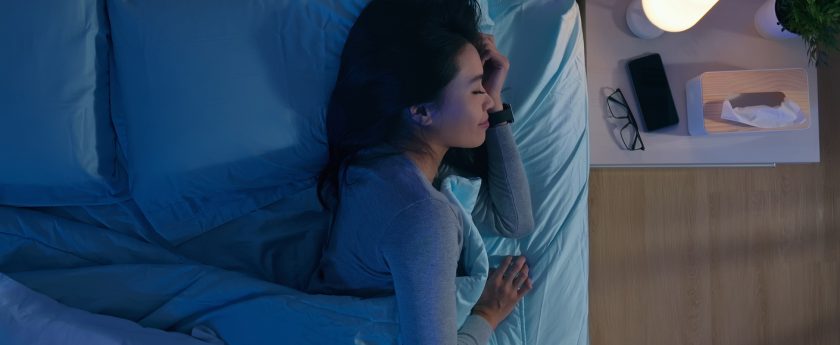Sleep is one of the most important factors to overall health and wellness that is often overlooked. During your sleep cycle, your body is healing itself and preparing your mind and body for another day. Sleep issues are common and there can be so many reasons as to why it is difficult to sleep or why people still wake up feeling tired.
Here are 3 tips for better sleep:
1. Get into a consistent sleep routine – even on weekends
Having a consistent sleep schedule is recommended by the CDC for better sleep health. This means going to bed at the same time and waking up at the same time. Having a consistent sleep schedule will set your internal clock so that you wake up feeling energized naturally and fall asleep more easily at night, according to Harvard Health. For an adult, your sleep schedule should be the recommended 7-8 hours per night, which will help your mental health, physical health, and overall sleep hygiene. Your body needs consistent rest with REM cycles to operate at its best. Benefits of getting the recommended amount of sleep include reducing risk of disease, improving your mood, having clearer thinking, and staying at a healthy weight.
2. Avoid large meals, caffeine, and alcohol before bed
Late night snacking is a bad habit that can cause weight gain, but also poor sleep habits and even digestion issues. Eating a large meal right before bed is even worse. Your body needs time to digest as you are awake to avoid things like acid reflux. Caffeine is a stimulant that lasts in your body longer than you realize. Drinking a cup of coffee midday means the caffeine will still be in your system by bedtime, according to this TedTalk. And finally, alcohol is a depressant so you would think it would help you sleep, however; the sedative effect of alcohol is not sleep. This is why you often feel more tired after a night of drinking.
3. Avoid electronic devices before bed
The National Sleep Foundation says you should stop using your electronic devices 30 minutes before bed. By doing so, you are reducing your exposure to blue light. Digital devices and LED lights emit blue light which is known to cause sleep problems, headaches, fatigue, and eye strain. Blue light reduces the production of melatonin, which is the hormone that your body needs to fall asleep. By putting away the phone and turning off the TV, you are setting yourself up for better sleep habits.
Overall, having healthy sleep habits will lead to better overall health and wellness. Your mind will feel clearer and your body will be in its optimum performance.
Another way to avoid blue light is by wearing blue light resistant lenses. Learn more at BlueTech.com and find out where to buy.
Find BluTech Near You




